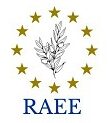Author: Prof. Dr. Mirjam van Reisen
Year: October, 2017
Language: English
Background
This report was commissioned to provide background to the practice of early child marriage in Uganda (Baganda ethnic community) and sexual practices related to underaged girls. The research is carried out by the Research Network Globalisation, Accessibility, Innovation and Care (GAIC). The network carries out research in the area of social protection, gender, mobility, migration and human trafficking.
The research network has recently implemented various research projects, funded by the Dutch government, the EU and private funders. This research includes research in the following areas:
– Social protection in Uganda
– Trauma amongst women and girls in Uganda
– Mixed Migration in East Africa and the Horn
– Human Trafficking Routes in East Africa and the Horn
In Uganda the network collaborates with Makerere University and Mbarara University.
Prof Dr. Mirjam van Reisen
Introduction
This report describes the practices of early marriage and sexual customs of under-aged girls in Uganda.
Uganda is a landlocked country in East Africa, bordered between South Sudan, Kenya, Congo and Rwanda. In 2014, Uganda had a population of approximately 34.6 million people (National Population and Housing Census, 2014, in: Uganda Bureau of Statistics, 2016), and according to recent data published by countrymeters.info, currently a population of 41 million, of which 51% was female (Uganda Bureau of Statistics, 2016).1 Uganda gained independence in 1962.
Where possible this report focuses specifically on the Baganda ethnic community. The Baganda community lives in Central Uganda, a Bantu ethnic group and a subnational kingdom within Uganda (since 1992), in the presidential republic of Uganda. The origin of the Kingdom of Buganda, is in the 16th century. The Kingdom is headed by the king or Kabaka. The Baganda have their own language (Luganda) and cultural practices. The Baganda constitute 18% of the population of Uganda.
The Bantu-speaking ethnic group constitutes the majority, amongst a varied ethnic Ugandan population comprising of over 65 dialects. (Uganda Education for All 2015 National Review, 2015: 6). For inter-ethnic communication Luganda (the language of the Buganda) and Swahili are used. Swahili is the dominant language in the East African region.
English is the official language in Uganda, considered neutral, and Swahili, has been proposed as the country’s second official language, displacing Luganda as a more ‘neutral’ option. English is the principal language in education, and is used as the formal language in official communication of the government and the judiciary.
This report is based on a literature review and information provided by experts.
